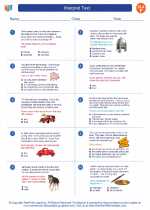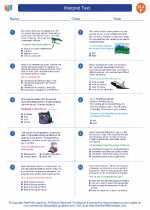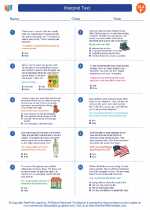Interpret Text
Interpreting text involves understanding and analyzing written or spoken language to gather meaning and draw conclusions. It requires reading between the lines, making inferences, and understanding the author's purpose and point of view. Here are some key skills and strategies for interpreting text:
- Close Reading: Pay close attention to the details in the text, including words, phrases, and literary devices. Look for patterns and repeated themes.
- Making Inferences: Use context clues and prior knowledge to make educated guesses about what the text implies or suggests.
- Identifying Main Ideas: Determine the central themes or messages conveyed in the text.
- Understanding Point of View: Consider the author's perspective and how it influences the text.
- Analyzing Literary Devices: Recognize and analyze figurative language, symbolism, imagery, and other literary elements that enhance the meaning of the text.
- Evaluating Evidence: Assess the evidence presented in the text and how it supports the author's argument or ideas.
It's important to practice these skills through reading a variety of texts, including fiction, non-fiction, poetry, and informational articles. Here are some study tips and activities to enhance your ability to interpret text:
Study Guide
1. Read Actively: Engage with the text by highlighting key passages, taking notes, and asking questions as you read.
2. Discuss with Peers: Participate in group discussions to share interpretations and gain different perspectives on the text.
3. Analyze Sample Texts: Practice interpreting passages from different genres and time periods to broaden your understanding of various writing styles.
4. Write Interpretive Essays: Craft essays that analyze and interpret texts, providing evidence to support your interpretations.
5. Explore Multimedia Texts: Interpret visual and multimedia texts, such as art, videos, and advertisements, to expand your interpretation skills beyond written language.
6. Seek Guidance: Consult with teachers or tutors for feedback on your interpretations and to gain insights into challenging texts.
By honing your skills in interpreting text, you'll become a more critical and insightful reader, able to extract deeper meaning from a wide range of written works.
Good luck with your studies!
[Interpret Text] Related Worksheets and Study Guides:
.◂English Language Arts Worksheets and Study Guides Sixth Grade. Interpret Text

 Worksheet/Answer key
Worksheet/Answer key
 Worksheet/Answer key
Worksheet/Answer key
